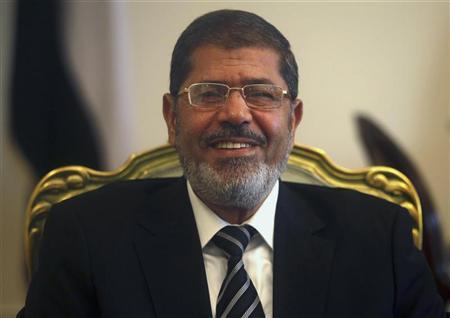
President Mohamed Morsy’s Sudan visit has achieved its objectives, the presidency declared in a press statement Sunday.
The two countries agreed on investment projects, according to the statement, including the construction of a land route and a railway line between Egypt and Sudan and the establishment of a shipping company. There was also agreement on the allocation of two million acres in Sudan for Egyptian business to cultivate strategic crops, such as wheat.
“The land road would facilitate trade,” said Egypt Transport Minister Hatem Abdel Latif in a press conference attended by seven ministers who had accompanied the president during his two-day visit. “We also agreed to open more border crossings between Egypt and Sudan.”
“The Aswan-Wadi Halfa 500-km railway line will soon be offered to potential investors to build,” he said, adding that the Sudanese asked to benefit from Egyptian expertise in maritime transport and safety.
Minister of Planning and International Cooperation Ashraf al-Araby said the eastern road between Egypt and Sudan that would be inaugurated in a few days has been closed for 12 years. “It will facilitate trade between Sudan and Upper Egypt,” he said.
“Sudan has great potential in terms of food security for the people of the two countries,” Araby said, adding that the High Joint Committee that was formed for that purpose will be convening every six months.
“Another important outcome of the visit was that both presidents talked about an axis between Egypt, Sudan and Libya,” he said, adding that this would facilitate plans for economic and social development.
According to Tourism Minister Hesham Zaazou 200,000 Sudanese tourists visit Egypt every year. “We will concentrate on medical tourism,” he said, pointing to a three-year protocol that was signed to this effect.
Minister of Supply Bassem Ouda said that Egypt imports 5 percent of its meat imports from Sudan. “The president asked to increase this to 20 percent,” he said, adding that the government aims to provide high-quality meat at reasonable prices, especially in the poorest areas. “For the ordinary citizen, this is a mechanism of the socio-economic reform program,” he said.
Egyptian investments in Sudan amounted to US$7.75 billion in 2011, through 213 projects in the industrial, service and agricultural sectors, while Sudanese investments in Egypt amount to US$184 million through 257 companies.



